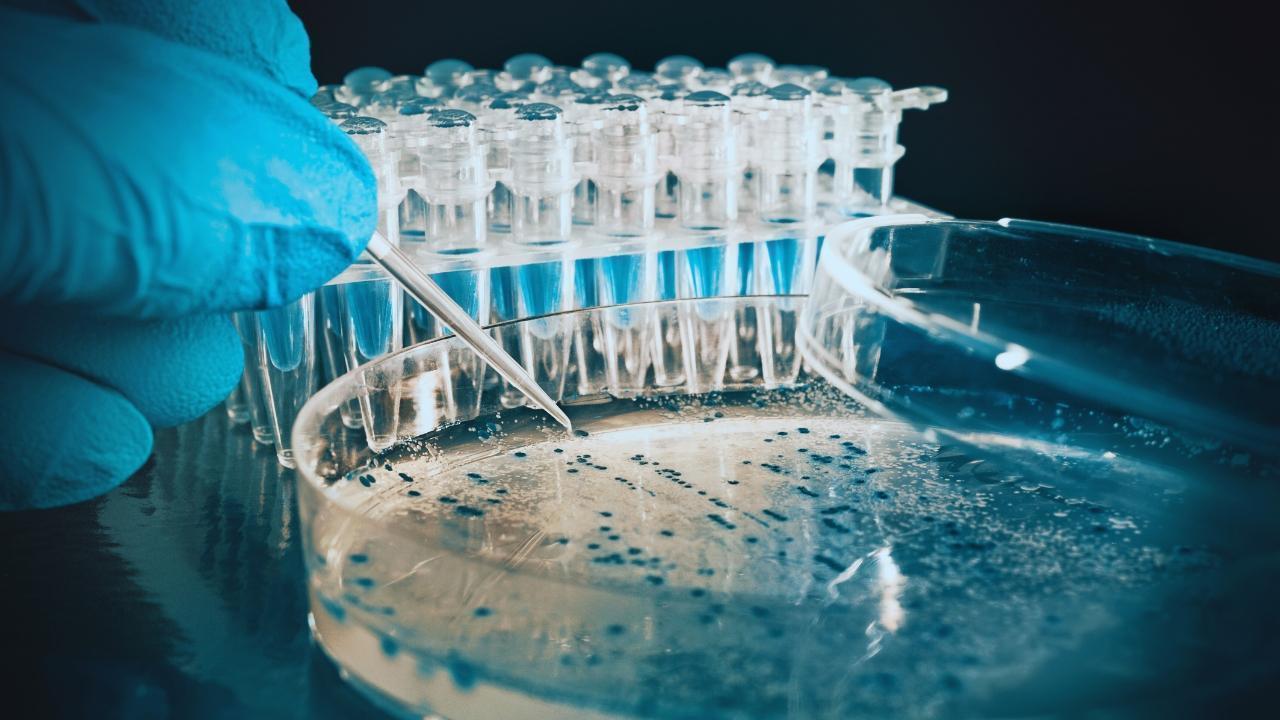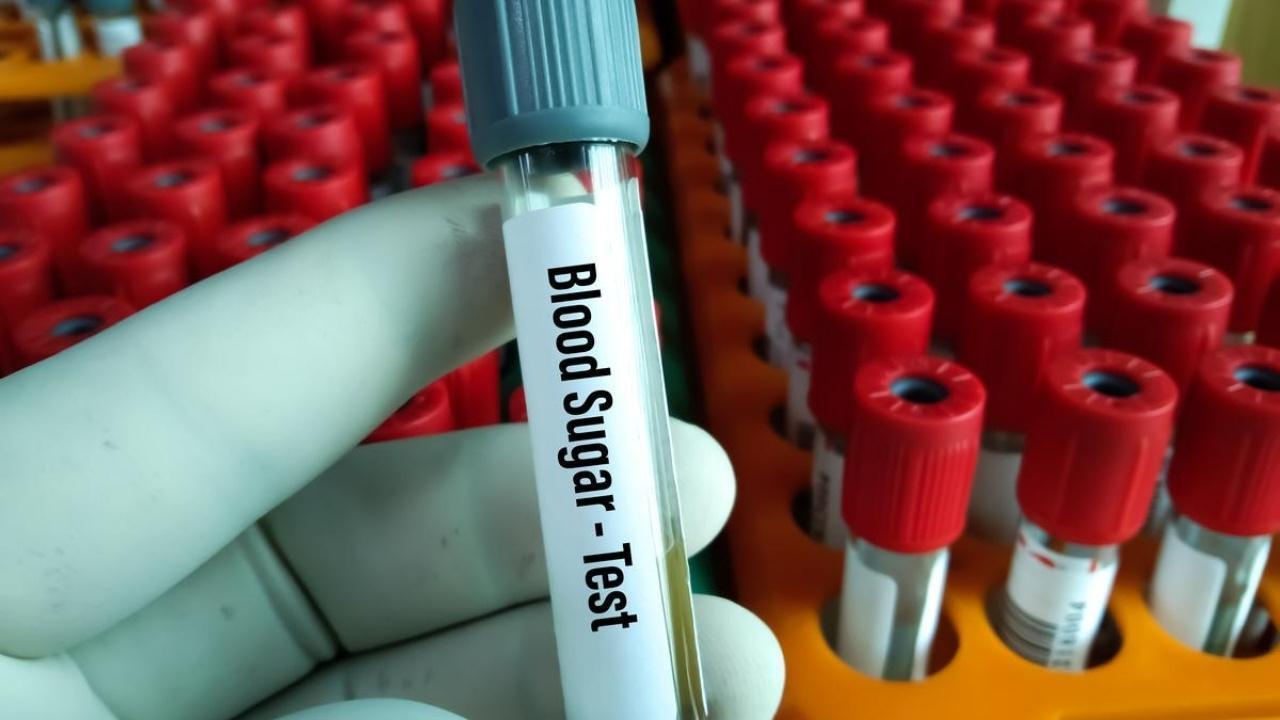You have not yet added any article to your bookmarks!

Join 10k+ people to get notified about new posts, news and tips.
Do not worry we don't spam!

Post by : Anis Farhan
In the last decade, biotechnology has evolved from a niche scientific field into a cornerstone of modern medicine. At the center of this revolution are groundbreaking technologies like CRISPR gene editing, personalized medicine tailored to individual DNA, and non-invasive tools for early cancer detection. These advancements are not just reshaping healthcare—they are redefining what it means to diagnose, treat, and even prevent disease. For patients, doctors, and investors alike, understanding the pace and promise of biotech isn’t optional anymore—it’s essential.
When CRISPR-Cas9 first entered public discourse in the early 2010s, it seemed almost too good to be true. The idea that scientists could edit genes as easily as typing on a keyboard captured imaginations across the globe. Today, it’s no longer theoretical. CRISPR has advanced to the point where it’s now used in clinical trials to treat diseases like sickle cell anemia, certain cancers, and even hereditary blindness.
The core power of CRISPR lies in its precision. Traditional gene therapies often scatter their effects throughout the genome, with unintended consequences. CRISPR, by contrast, allows scientists to cut DNA at exact locations and replace or delete faulty genes. This opens up a wide range of possibilities—from curing inherited disorders to developing virus-resistant crops.
What was once lab-bound is now being tested in humans. Biotech companies and research institutes across the globe are in a race to develop commercial CRISPR-based therapies. And while regulatory hurdles remain, especially in ethical gray zones like embryo editing, the medical world has crossed the point of no return. The gene-editing future is here.
Another game-changing evolution in biotech is personalized medicine. Instead of giving every patient the same pill for the same illness, personalized medicine uses genetic data, lifestyle information, and environmental exposure to customize treatment plans. This shift is radically improving outcomes—especially in cancer treatment, autoimmune conditions, and chronic illnesses like diabetes and hypertension.
For instance, breast cancer patients no longer rely on a one-size-fits-all approach. Genomic testing can now reveal specific mutations in tumors, helping oncologists select the drug most likely to succeed. Similarly, in cardiology, pharmacogenomics allows doctors to determine how a patient’s genes might influence their response to blood thinners or cholesterol medications.
Behind the scenes, artificial intelligence and big data are making this possible. By analyzing thousands of patient records, algorithms can detect patterns invisible to human eyes. The result is a smarter, more precise healthcare system that wastes fewer resources and delivers better results.
For consumers, this translates to higher success rates, fewer side effects, and quicker recovery times. For the healthcare industry, it means lowering costs in the long term, reducing hospital readmissions, and minimizing trial-and-error in treatment planning.
Early detection has always been the holy grail of cancer treatment. The sooner a tumor is caught, the higher the survival rate. Enter liquid biopsies—a non-invasive test that can detect cancer from a simple blood sample. Unlike traditional biopsies, which require surgical extraction of tissue, liquid biopsies scan for genetic fragments of tumors that circulate in the bloodstream.
This is particularly useful for cancers that are hard to detect early, like pancreatic or ovarian cancer. A 2024 study found that liquid biopsies could identify several types of cancer before symptoms appeared, giving patients a crucial head start in treatment.
Alongside this, molecular scanning technologies are also evolving. Using advanced imaging and machine learning, these scans can identify abnormal tissue patterns even before a tumor forms. Hospitals are increasingly integrating these tools into annual checkups for high-risk patients.
As these technologies improve in sensitivity and cost-efficiency, routine early screening may become as common as cholesterol tests. This could usher in a new era where cancer is not just treatable—but preventable.
The biotech industry isn’t just innovating medicine—it’s transforming markets. According to recent financial data, biotech startups focusing on gene editing, personalized diagnostics, and early cancer detection have raised billions in venture capital. Pharmaceutical giants are acquiring or partnering with these companies to stay ahead in the competitive race.
Governments are also investing. In 2024, the U.S. National Institutes of Health increased funding for precision medicine initiatives, while the European Union launched the “Genome Health Alliance” to support genomics research across member states. China, too, is pouring resources into biotechnology, viewing it as a pillar of future economic and military power.
This influx of funding is speeding up innovation and commercialization. What once took decades to develop now takes just a few years. And with regulatory frameworks slowly adapting to these rapid changes, biotech is poised to become the most dynamic segment of the healthcare sector in the next ten years.
While the potential is immense, the biotech surge comes with its challenges. Gene editing, for instance, raises serious ethical questions—especially when used in embryos or potentially heritable lines. The specter of “designer babies” continues to loom large, prompting fierce debates in scientific, religious, and political communities.
Data privacy is another concern. As personalized medicine relies heavily on genetic and lifestyle data, protecting that information becomes crucial. Who owns your genome? Can insurers or employers access it? As laws scramble to catch up, these issues remain unresolved.
Moreover, biotech innovations tend to be expensive at first. Access is often limited to wealthier patients or nations, risking a widening health gap between rich and poor. Equity in biotech will be one of the defining debates of this decade.
Despite the challenges, biotech is quietly slipping into everyday healthcare. Pharmacists are increasingly trained in genomics. Wearable devices are now syncing with DNA-based fitness and diet plans. Insurance companies are starting to reimburse for certain genetic tests. In hospitals, cancer care teams include genetic counselors as standard.
We are witnessing the slow redefinition of what healthcare means. It is no longer reactive but predictive. It is no longer general but personal. As biotech technologies become more affordable and widespread, their influence will move from specialized hospitals to general clinics, and from clinical trials to kitchen tables.
Perhaps the most profound shift brought by biotech is the change from curing illness to preventing it. If doctors can predict which diseases you’re at risk for—before symptoms even start—then healthcare moves from crisis management to long-term wellness planning.
Imagine an annual health review that includes a full genome scan, early cancer marker screening, and personalized diet and drug advice. It’s not science fiction anymore; it’s a fast-approaching future. And biotech is laying the foundation.
For patients, this means more agency and less fear. For healthcare systems, it means managing costs better and focusing on long-term outcomes. For society, it may finally break the cycle of reactive treatment and chronic illness that burdens billions globally.
The fusion of CRISPR, personalized medicine, and early cancer detection marks the beginning of a new chapter in healthcare. We’re not just improving old tools—we’re inventing entirely new ones. And while the path forward includes ethical dilemmas and access challenges, the direction is clear.
Next-gen biotech isn’t about patching up a broken body. It’s about understanding it, anticipating its needs, and treating it before it falls apart. In the coming years, the biggest winners in healthcare won’t just be those with the best drugs—but those with the smartest data, the most adaptable systems, and the boldest imagination.
The revolution has already begun.
This article is intended for informational purposes only. The views and opinions expressed do not necessarily reflect the official policy or position of Newsible Asia. Readers are advised to conduct their own research and consult with relevant experts before making any financial, legal, medical, or personal decisions based on the information provided.










Abhishek Sharma Hospitalised With Stomach Infection, Doubtful for India’s T20 World Cup Match Against Namibia
Indian opening batter Abhishek Sharma has been hospitalised with a stomach infection and is unlikely

Mass Shooting in British Columbia Leaves 10 Dead in One of Canada’s Deadliest Attacks
A tragic mass shooting at a high school and nearby residence in Tumbler Ridge, British Columbia, has

More Than a Ticket Out: How IPOs Are Redefining Value for Startups and Investors
In the evolving startup ecosystem, initial public offerings (IPOs) have emerged as far more than exi

Study Warns Using AI for Medical Advice Is ‘Dangerous’ as Users Get Inaccurate Health Guidance
A major new study reveals that artificial intelligence (AI) chatbots and tools may give misleading o

Top Sci-Fi Movies Streaming on Netflix This February: Must-Watch Picks for Genre Fans
A curated news-style guide to the best science fiction films currently available on Netflix in Febru

BCCI Central Contracts Shake-Up: Kohli, Rohit Moved to Grade B as Board Reshapes 2025–26 List
Virat Kohli and Rohit Sharma have been placed in Grade B in the BCCI’s 2025–26 central contract list